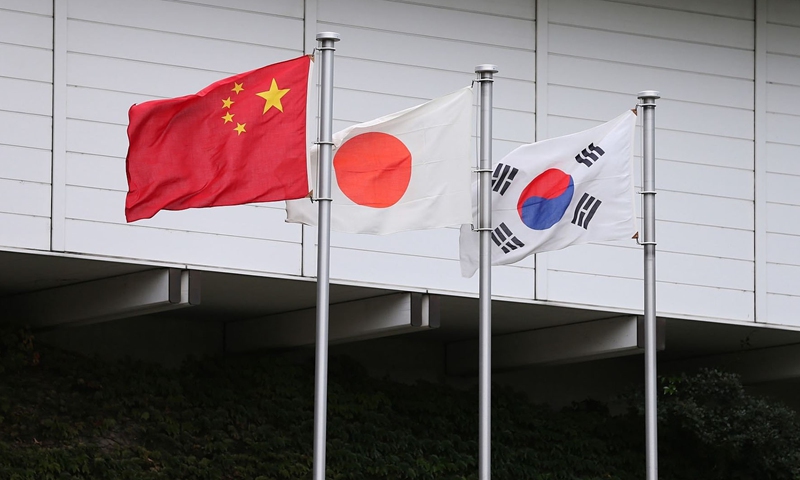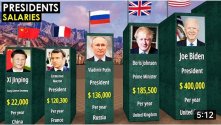You are using an out of date browser. It may not display this or other websites correctly.
You should upgrade or use an alternative browser.
You should upgrade or use an alternative browser.
Miscellaneous News
- Thread starter bd popeye
- Start date
US sending armed forces inside China when they haven't been given permission is an act of war.
Communist China does not allow Fascist America to intrude on areas where they're not allowed to be, nor does it suffer the long term existance of similar nazi nations.
supercat
Colonel
The following graph from the article underscores the main point: the U.S. and Europe's containment of China is futile, because China's export is switching toward the Global South:Sino-forming of Global South passes point of no return
As Western nations question the benefits of globalization, China has become the world’s leading globalizer
By JULY 29, 2022
[My Comments]
From educated eyes like author's, China has been advancing its goals one step at time, in the context of US-China trade-tech war since Trump admin. Along with last week's surprise of SMIC 7nm delivery, I think enough writings are already on the wall: waging a 21st century cold war against China has a lesser chance to win than the Ukraine war. But the implications are epically different. It is about time for young generations of politicians in the US to step up and take over. It is all about American middle class (foundational), not about global hegemony (illusional).

The vast majority of Western economists, with a few exceptions such as Michael Hudson, doesn't understand that in China, the creditor/rentier oligarchy is not allowed to extract profit/rent from monopoly on land indefinitely.
Trump, the President of our Times. Our hero. I will see you in 2024, Trump!Man apparently, even crazy Trump isn’t as crazy as Botox Pelosi.
when wealth evaporates things become tense even among pals.
real wealthy people do things calmly.
The news conference, which began an hour later than scheduled and ran for an hour, started off with calm remarks by the two ministers but became increasingly testy as they criticised each other's policies.
real wealthy people do things calmly.
Let them decouple, and plunge into poverty and the stone age.... 90% of Daiso (Japanese dollar store) products are China made.
Japan's decoupling moves to reduce trade with China, country may lose title of No.4 trade partner to South Korea
South Korea may surpass Japan as No.4 trading partner in 2022
By and Qi Xijia Published: Jul 30, 2022 12:22 AM

China Japan South Korea File photo:CGTN
As Japan and South Korea pursue different paths in supply chain cooperation with China, with one drifting toward weaponizing trade, while the other is trying to keep it on a business-to-business basis, Chinese analysts said the different approaches may have an impact on trade and possibly result in South Korea overtaking Japan as China's fourth-largest trading partner, a position Japan has held for years.
The comments come as the US and Japan held the "Economic 2+2" forum on Friday, which expanded the two allies' strategic coordination on economic issues with an eye to diversify supply chains from and intensify high-tech competition with China.
The US has been pressuring Japan and South Korea to join its various platforms for supply chain "security."
US Treasury Secretary Janet Yellen called for support from allies of the US to work together in creating "more resilient" supply chains among trusted partners through so-called friend-shoring in mid-July.
On Tuesday, in his teleconference with SK Group Chairman Chey Tae-won on plans by South Korea's second-largest conglomerate to invest in the US, US President Joe Biden said that "In the past, these kinds of technology investments went to China."
A White Paper released by the Japanese Chamber of Commerce and Industry in China on Friday noted that, in the field of software, there is concern that more and more Japanese companies in China will feel the situation is beyond what they can handle, as the US and China are entangled in fierce competition over advanced technologies.
Li Tianguo, an associate professor at the National Institute of International Strategy, told the Global Times on Friday that the US has been trying to drive a wedge through the close, decades-long industry chain cooperation among China, Japan and South Korea - the core of East Asia's production network - by inviting the two latter countries to join a series of exclusive mechanisms.
Japan's active stance in the various forums, which have supply chain decoupling with China as a theme, is in contrast to South Korea's more cautious approach, Li said.
Experts said Japan's newly passed economic security law has caused its investment in China to slow down, while South Korea led in foreign investment in China with a 37.2 percent year-on-year increase in the first six months of this year.
The cooling of Japanese investment and trade with China has been largely affected by the economic security law, which imposed some restrictions and required tougher investment scrutiny for Japanese companies to carry out high-tech cooperation with China, Chen Zilei, director of the Research Center for Japanese Economics at the Shanghai University of International Business and Economics, told the Global Times on Friday.
"Although Japanese enterprises are still very optimistic about the development of the Chinese market, there are some legal restrictions, which are not conducive to the bilateral cooperation between these enterprises and Chinese enterprises," Chen said.
"In the current trend, it is expected that South Korea's trade with China will surpass that of Japan's with China soon."
In the first half of 2022, South Korea overtook Japan as China's No.4 trading partner, trailing ASEAN, the EU and the US.
In a speech by video link at the ASEAN Plus Three (Japan-China-South Korea) production and supply chain cooperation forum on Friday, Chinese Vice Premier Hu Chunhua called for efforts to ensure the smooth operation of supply chains to ward off risks and ensure regional prosperity.
Hu welcomed foreign companies to invest and expand in China, deepen mutually beneficial cooperation, and forge a secure, high-quality supply chain partnership.
Li said the spirit of cooperation has yielded dazzling fruit in past decades, and faced with the lingering pandemic and volatile commodity markets, South Korea and Japan should cherish the spirit of cooperation that brought them to the present prosperous state.
Chen noted that cooperation between China and Japan in third markets including ASEAN is showing good momentum, and there is still a lot of room for cooperation, which is not necessarily reflected in the bilateral trade and investment data.
The White Paper also showed that 96.1 percent of the 8,500 surveyed companies in China said they would expand their business or keep it at the current level, while those planning to leave only accounted for 3.8 percent, reflecting general confidence by Japanese companies in the Chinese market.
The majority of Japanese companies that operate in China are seeing their profits reach levels before the COVID-19 epidemic, banking on China's recovery from the epidemic, the survey showed.
Chen said Japan's various plans with the US may not go as expected, as the two countries may have wider differences if the US fails to offer its alliance concrete economic benefits such as tax breaks and wider market access as negotiations roll on.
Japan's decoupling moves to reduce trade with China, country may lose title of No.4 trade partner to South Korea
South Korea may surpass Japan as No.4 trading partner in 2022
By and Qi Xijia Published: Jul 30, 2022 12:22 AM

China Japan South Korea File photo:CGTN
As Japan and South Korea pursue different paths in supply chain cooperation with China, with one drifting toward weaponizing trade, while the other is trying to keep it on a business-to-business basis, Chinese analysts said the different approaches may have an impact on trade and possibly result in South Korea overtaking Japan as China's fourth-largest trading partner, a position Japan has held for years.
The comments come as the US and Japan held the "Economic 2+2" forum on Friday, which expanded the two allies' strategic coordination on economic issues with an eye to diversify supply chains from and intensify high-tech competition with China.
The US has been pressuring Japan and South Korea to join its various platforms for supply chain "security."
US Treasury Secretary Janet Yellen called for support from allies of the US to work together in creating "more resilient" supply chains among trusted partners through so-called friend-shoring in mid-July.
On Tuesday, in his teleconference with SK Group Chairman Chey Tae-won on plans by South Korea's second-largest conglomerate to invest in the US, US President Joe Biden said that "In the past, these kinds of technology investments went to China."
A White Paper released by the Japanese Chamber of Commerce and Industry in China on Friday noted that, in the field of software, there is concern that more and more Japanese companies in China will feel the situation is beyond what they can handle, as the US and China are entangled in fierce competition over advanced technologies.
Li Tianguo, an associate professor at the National Institute of International Strategy, told the Global Times on Friday that the US has been trying to drive a wedge through the close, decades-long industry chain cooperation among China, Japan and South Korea - the core of East Asia's production network - by inviting the two latter countries to join a series of exclusive mechanisms.
Japan's active stance in the various forums, which have supply chain decoupling with China as a theme, is in contrast to South Korea's more cautious approach, Li said.
Experts said Japan's newly passed economic security law has caused its investment in China to slow down, while South Korea led in foreign investment in China with a 37.2 percent year-on-year increase in the first six months of this year.
The cooling of Japanese investment and trade with China has been largely affected by the economic security law, which imposed some restrictions and required tougher investment scrutiny for Japanese companies to carry out high-tech cooperation with China, Chen Zilei, director of the Research Center for Japanese Economics at the Shanghai University of International Business and Economics, told the Global Times on Friday.
"Although Japanese enterprises are still very optimistic about the development of the Chinese market, there are some legal restrictions, which are not conducive to the bilateral cooperation between these enterprises and Chinese enterprises," Chen said.
"In the current trend, it is expected that South Korea's trade with China will surpass that of Japan's with China soon."
In the first half of 2022, South Korea overtook Japan as China's No.4 trading partner, trailing ASEAN, the EU and the US.
In a speech by video link at the ASEAN Plus Three (Japan-China-South Korea) production and supply chain cooperation forum on Friday, Chinese Vice Premier Hu Chunhua called for efforts to ensure the smooth operation of supply chains to ward off risks and ensure regional prosperity.
Hu welcomed foreign companies to invest and expand in China, deepen mutually beneficial cooperation, and forge a secure, high-quality supply chain partnership.
Li said the spirit of cooperation has yielded dazzling fruit in past decades, and faced with the lingering pandemic and volatile commodity markets, South Korea and Japan should cherish the spirit of cooperation that brought them to the present prosperous state.
Chen noted that cooperation between China and Japan in third markets including ASEAN is showing good momentum, and there is still a lot of room for cooperation, which is not necessarily reflected in the bilateral trade and investment data.
The White Paper also showed that 96.1 percent of the 8,500 surveyed companies in China said they would expand their business or keep it at the current level, while those planning to leave only accounted for 3.8 percent, reflecting general confidence by Japanese companies in the Chinese market.
The majority of Japanese companies that operate in China are seeing their profits reach levels before the COVID-19 epidemic, banking on China's recovery from the epidemic, the survey showed.
Chen said Japan's various plans with the US may not go as expected, as the two countries may have wider differences if the US fails to offer its alliance concrete economic benefits such as tax breaks and wider market access as negotiations roll on.
Meanwhile Kamala Harris be like, when will it ever be me?!!!
Hyena Harris.
"Jai" Harris
"Jai Ho"rris"Jai" Harris


